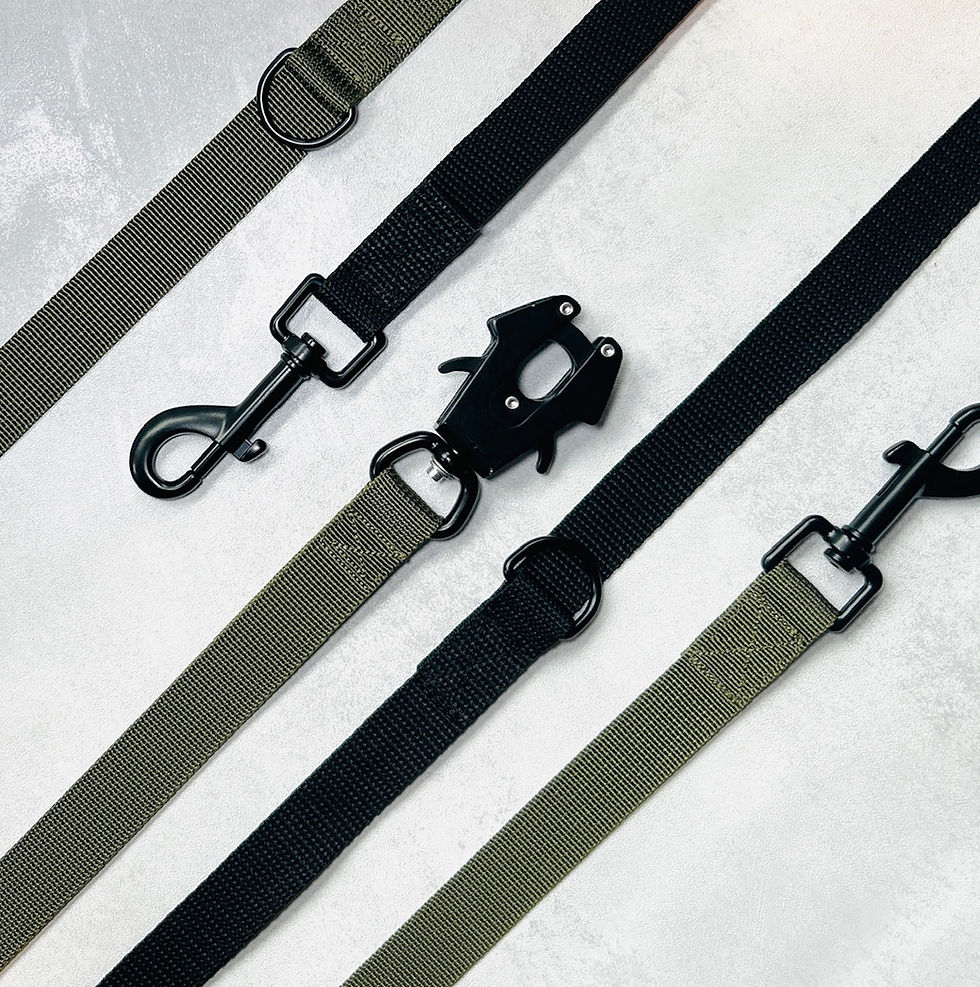Mindfully Working With Your Dog: Building Connection, Trust, and Lasting Change
- Cat Hamilton

- Apr 29
- 3 min read
In a world of quick fixes and fast-paced living, it can be easy to rush through training sessions with our dogs; checking off tasks and focusing solely on obedience. But when we pause, breathe, and choose to approach our dogs with mindfulness, something transformative happens: training becomes connection. Habits become harmony. And we stop “fixing” our dogs and start understanding them.
Mindfulness is the practice of being fully present in the moment, it brings deep benefits to the human-dog relationship. When we train mindfully, we aren’t just shaping behaviour; we’re nurturing communication, compassion, and trust.
Here are some key benefits:
Stronger Bonds
When you work mindfully with your dog, you’re not just telling them what to do; you’re listening, too. You begin to notice subtle cues in their body language, their energy, and their emotional state. This attentiveness creates a bond rooted in mutual respect and understanding.
2. Improved Behaviour Through Calmness
Dogs are incredibly sensitive to our emotional states. When we approach them with calm awareness instead of frustration or reactivity, they’re more likely to respond in kind. Mindfulness helps regulate your own nervous system, which in turn helps regulate your dog’s.
3. Reduced Stress (For Both of You)
A mindful approach reduces the pressure on both ends of the leash. Instead of focusing on perfection or comparison, you become more attuned to your dog’s needs and your own. Time together becomes more enjoyable, less stressful, and more sustainable over time.
4. Enhanced Communication
When you're fully present, you notice the how behind your dog’s behaviours; not just the what. Is your dog hesitant? Excited? Confused? These nuances are easily missed in a rushed mindset but are essential for effective, compassionate training.
Mindful dog coaching is both an art and a discipline. It’s not about being a guru; it’s about cultivating awareness, patience, and emotional presence in every interaction.
Here are the core habits and skills that define a mindful dog coach:
Observation Without Judgment
A mindful coach watches closely without labelling the dog as “bad,” “stubborn,” or “dominant.” They see behaviour as information, not a problem to solve. They ask: What is the dog trying to communicate right now?
2. Listening with All the Senses
Beyond verbal cues, mindful coaches tune into body language, energy shifts, and emotional tone. They don’t just hear; they feel and observe deeply, creating space for more accurate and compassionate responses.
3. Regulating Their Own Emotions
Before asking a dog to be calm and attentive, a mindful coach checks in with themselves. Am I grounded? Am I present? They know that dogs mirror human emotions and that their own state is the foundation for effective training.
4. Practicing Patience and Presence
There’s no rush. Mindful dog coaches honour the dog’s pace of learning. They take breaks, celebrate small wins, and remain present even during setbacks—trusting the process over the outcome.
5. Emphasising Relationship Over Control
Control-based training focuses on compliance; mindful coaching centres on collaboration. It’s about teaching the dog to think, choose, and feel safe; not just to obey.
6. Continual Reflection and Growth
Mindful coaches are lifelong learners. They reflect on their sessions, notice where their ego might be showing up, and stay open to new insights; about dogs and themselves.
Working mindfully with your dog is not just a training style, it’s a way of being. It invites you to slow down, tune in, and show up fully. And in doing so, you create a space where both you and your dog can thrive, not just as teacher and student, but as partners, allies, and companions.
Whether you’re a professional trainer or simply a loving guardian, bringing mindfulness into your work with dogs will deepen your connection, elevate your results, and transform the journey into something truly beautiful.











Comments